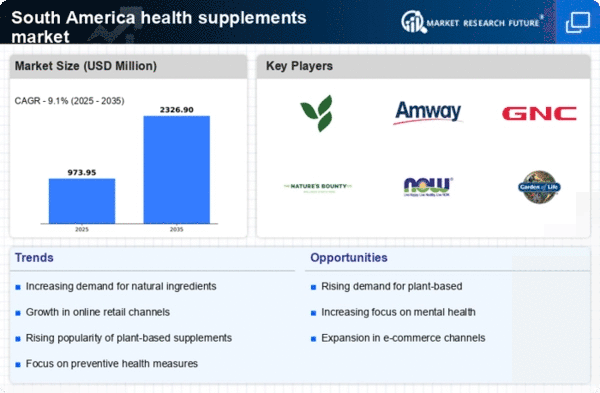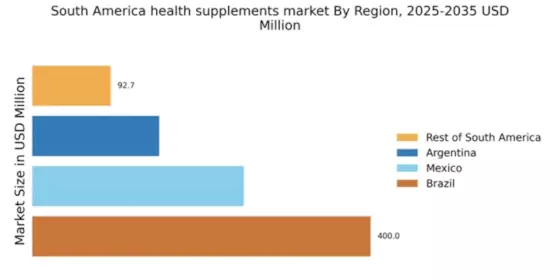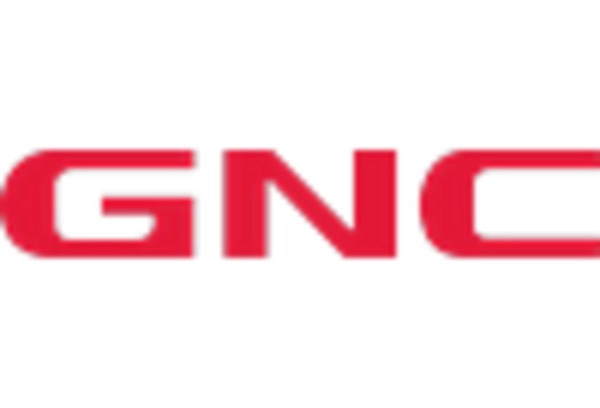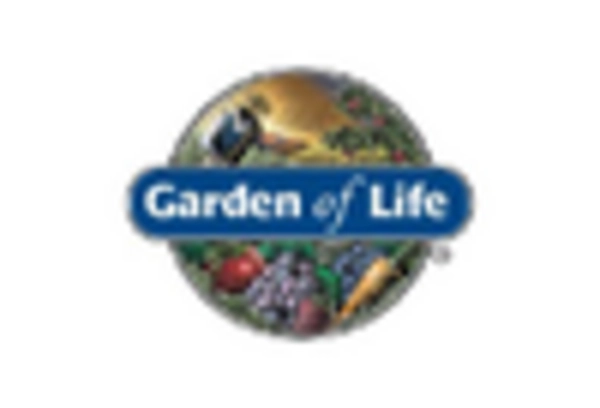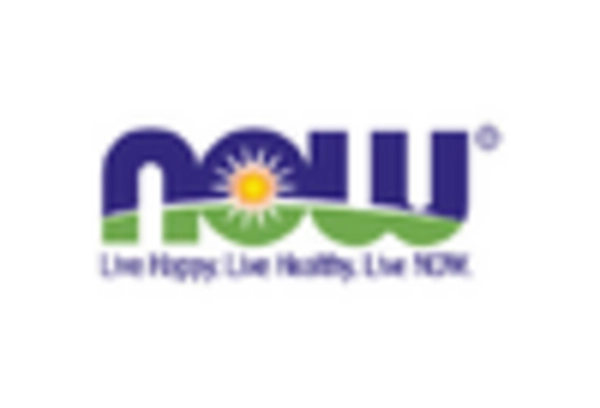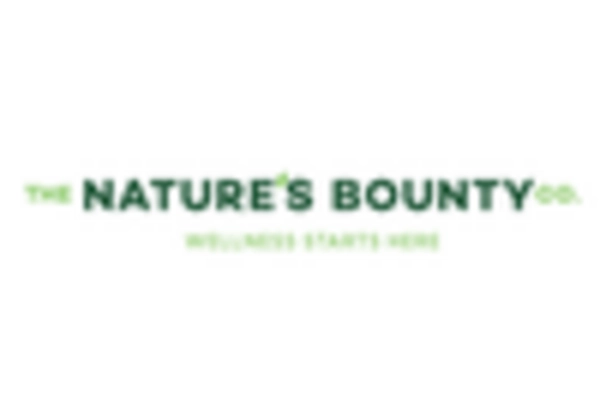Rising Disposable Incomes
In South America, the health supplements market is benefiting from an increase in disposable incomes among the population. As economic conditions improve, more individuals are willing to allocate a portion of their income towards health and wellness products. Recent statistics indicate that disposable incomes in several South American countries have risen by approximately 15% over the past five years. This financial flexibility allows consumers to explore a wider range of health supplements, from basic vitamins to specialized formulations targeting specific health concerns. The health supplements market is thus poised for growth, as consumers increasingly view these products as essential investments in their health. This trend is particularly pronounced in urban areas, where access to a variety of health supplement options is more readily available, further driving market expansion.
Growing Health Consciousness
The health supplements market in South America is experiencing a notable surge in consumer awareness regarding health and wellness. This growing consciousness is driven by an increasing prevalence of lifestyle-related diseases, prompting individuals to seek preventive measures. According to recent data, approximately 60% of South Americans are now prioritizing their health, leading to a heightened demand for dietary supplements. This trend is particularly evident among younger demographics, who are more inclined to invest in health supplements as part of their daily routines. The health supplements market is thus witnessing a shift towards products that promote overall well-being, including vitamins, minerals, and herbal supplements. As consumers become more informed about the benefits of these products, the market is likely to expand further, with innovative formulations catering to specific health needs.
Regulatory Support for Health Products
The health supplements market in South America is benefiting from increasing regulatory support aimed at ensuring product safety and efficacy. Governments in various countries are implementing stricter guidelines for the production and marketing of health supplements, which helps to build consumer trust. This regulatory framework appears to encourage manufacturers to adhere to higher quality standards, thereby enhancing the overall credibility of the health supplements market. Recent legislative changes have streamlined the approval process for new products, allowing for quicker market entry while maintaining safety protocols. As a result, consumers are more likely to invest in health supplements that are backed by regulatory approval, fostering a more robust market environment. This trend is expected to continue, as regulatory bodies increasingly recognize the importance of consumer protection in the health and wellness sector.
Increased Availability of Natural Ingredients
The health supplements market in South America is witnessing a growing trend towards the use of natural and organic ingredients. Consumers are becoming more discerning about the products they consume, favoring those that are free from artificial additives and preservatives. This shift is reflected in the rising demand for supplements derived from natural sources, such as herbal extracts and plant-based proteins. Recent data indicates that the market for natural health supplements has expanded by approximately 20% in the last two years. The health supplements market is responding to this demand by reformulating existing products and introducing new lines that emphasize purity and sustainability. This trend not only caters to consumer preferences but also aligns with broader environmental concerns, as more individuals seek to support brands that prioritize eco-friendly practices.
Influence of Social Media and Digital Marketing
The health supplements market in South America is significantly influenced by the rise of social media and digital marketing strategies. Brands are leveraging platforms such as Instagram and Facebook to reach a broader audience, promoting their products through influencers and targeted advertisements. This approach appears to resonate well with younger consumers, who are more likely to trust recommendations from social media personalities. Recent surveys suggest that nearly 40% of South American consumers have purchased health supplements based on social media recommendations. The health supplements market is thus adapting to this digital landscape, with companies investing in online marketing campaigns to enhance brand visibility and consumer engagement. As digital channels continue to evolve, the potential for market growth through innovative marketing strategies remains substantial.


